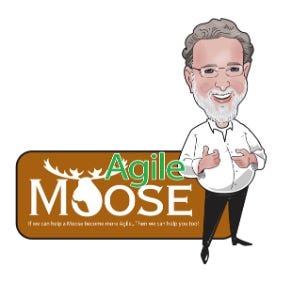The Value Conundrum
Are you adding value?
I recently collaborated with a host for an Ask Me Anything session. He shared some of the questions below in advance with me—
In which sense is it currently changing what value means for customers? Do you think that organizations demand something different from agilists nowadays?
In your mind, do you differentiate between different "types" of value?
How to show value in short-term gigs?
You hold countless talks and AMA about this topic. What patterns do you experienced? What concerns people? What are they afraid of?
What is your advice to agilists that
just get started
are more senior
Would your advice differ between both groups above?
In general, it made me reflect more on the value of being an agilist—
What is it?
How nuanced is it?
What are the various aspects?
How to deliver it?
How can I ensure I’m viewed as valuable?
How do I build or increase my perceived and actual value over time?
What constitutes value?
As I deeply reflected on this question, I was surprised by how many value-based characteristics or patterns emerged—
1. Insight Value—you help your clients see things they might not otherwise see by sharing your insights (stories, experiences, outcomes) for a particular situation. The value is in how you helpfully connect your experiences so that your client can connect the dots.
2. Trust Value—You’ve proven to your client that they can trust you. You’ve become what I like to envision as a Trusted Partner. Establishing and emerging from a trustworthy support track record takes time. One measure is how often you’re asked to participate in offering your advice.
3. Problem Solving Value—I don’t necessarily like the adage of—“Bring me solutions, not problems,” but there is some truth to the value that being a problem solver is within a coaching context. The conundrum is how often to adopt the stance.
4. Positivity Value—speaking for myself, I can’t tell you how refreshing it is to work with someone who has a positive, can-do attitude. It’s infectious and incredibly valuable during times of high change stress. I’ll also tell you how rare I find it when the going is tough.
5. Quality Value—you understand how important delivering high-quality outcomes (products, applications, workflows, etc.) is to the overall business. And you’ve proven adept at influencing your coaching contexts not to lose sight of it.
6. Predictive Value—Whether we want to believe it or not, as agilists, the ability to predict delivery is valuable to our clients. In this case, you’ve leveraged EBM, Kanban—Flow metrics, and Monte Carlo as exemplar tactics for prediction and communication.
7. Decision-making Value—It’s often incredibly hard for organizational leadership to make decisions. Everyone has a priority, and merging/aligning them is challenging. Helping to facilitate balanced business decisions can be invaluable to your clients.
8. Team Morale Value—Teams are often skewed to have a challenging view of leadership. However, it can be incredibly valuable to the organization if you represent it to the teams so that they understand, connect to, and deliver in support of leadership initiatives with high energy and morale.
9. Alignment Value—One of the top three to five issues that most organizations have when adopting agile is vertical alignment from senior leadership down to the teams. It’s incredibly valuable if coaches help align top-line vision to bottom-line execution in day-to-day operations.
10. Innovation Value—How are you influencing and encouraging your clients to take risks, run experiments, and deliver more innovative solutions? Your relationships can be immensely helpful in inspiring and leading innovation efforts and ensuring the results get exposure and consideration.
11. Delivery Value—Ultimately success is about Getting Shit Done. This is hard for most coaches because it requires them, in some way or another, to get in the game with their team or coaching client. I liken it to having a Project Management mindset (yes, I said that).
12. Inherent Leadership Value—I firmly believe that we’re all leaders and at times should be leading. Too often, we look “up” and expect others to lead. Perhaps it’s fear, lack of skill, or lack of safety, but no matter what, we’re showing value when we lead. Find opportunities to lead.
13. Direct Leadership Value—This is when you’ve been in leadership roles yourself. It helps you build partnerships, build empathy, and advise your coaching clients.
14. Partnership Value—Far too often, coaches are separate from their clients. This can be an intentional stance or influenced by the role description. Regardless of the driver, we need to be viewed as Trusted Partners in this case, with an emphasis on partnership (skin in the game).
15. Change Artist Value—Change is everywhere in almost all cases of agile transformation. It could be focused, well-articulated change or chaotic change. Most of your value here is experiential, having previously guided organizations through change initiatives.
16. Coaching Skills Value—Consider yourself a walking, talking oracle of agile value and values. You are the living example of agile principles being done well. Think Agile Coaching Growth Wheel here.
17. Courageousness Value—All too often, nobody wants to tell the emperor that they have no clothes. It takes courage, relationships, and risk-taking to step into this aspect. But many organizations need and value courageousness if it’s delivered with skill and awareness.
18. Domain Value—There are three aspects here: Do you bring business domain, product domain, or technical domain experience into your role? Are you comfortable providing mentoring, training, and advising stance coaching surrounding your experience?
19. Communications Value—Clarity of communications is one of those things that we all think we’ve mastered, but very few have. And it makes such a difference when leading organizations through change. Your value here is helping your clients craft and articulate compelling and clear messages.
20. ROI Value—At some fundamental level, your sponsors, stakeholders, and leaders must see your value exceeding your cost. Particularly since you’re in an “overhead” role, part of this is not discrete value but demonstrating and validating your priceless value.
My Value is…
I’d encourage anyone reading this to create a checklist and evaluate how many value points they implement in their current role, job, or engagement.
Many variables impact your value proposition. Your overall experience level is a large one, so don’t get disheartened if your value proposition is initially low. Remember: it’s only the beginning of your journey.
For general guidance, if you’ve evaluated to—
One to three, you’re either new to the business and building your value portfolio OR you’re basically in trouble ☹
Four to eight, now we’re talking 😉
Eight to twelve, take an extended vacation—you’ve earned it 😊
Greater than twelve, don’t get complacent 😊 😊 😊
Anti-Value
Without explaining them, I thought I’d share a few anti-Value items that will undermine your value perception and proposition. So, avoid them.
1. Agile-Scrum-Kanban-Scaling Framework Value
2. Execution Value
3. Event Value
4. Scrum Guide Value
5. Training Value
6. Professional Coaching Value
7. Invisible Value
8. Non-Business Value
9. Certification Value
While there might be some value in these, I’d argue that most/all of them don’t offer any value to your clients.
Showing Value – Short & Longer Term
In this section, I’m trying to address the following question—
How to show value in short-term gigs?
If you’re only engaging for a short-term assignment, then I think you need to bring more clear, immediate, and demonstrable value with you, emphasizing immediate. That is, look for opportunities that align with your value strengths, even if this deviates slightly from your coaching charter.
If you’ve got a longer-term opportunity, while there is still a sense of value urgency, you can be more relaxed in exposing your value portfolio to your clients.
In the end, the better strategy is quality over quantity and speed.
Wrapping Up
I’m curious about what value elements I’ve missed, so please share your ideas via comments.
This reflective exercise made me much more aware of the nuance behind the term "value," particularly if I’m in an agile role. Hopefully, it’s opened your eyes and increased your awareness and management of your value portfolio.
Stay agile, and VALUABLE, my friends,
Bob.
Whatever your role or experience, life in the agile space can be challenging today. Having someone to serve as your coach, as a sounding board, be a truthteller, and become a trusted partner on tap to leverage during those tricky bits can be helpful. That’s precisely where Agile Moose can help you.
We’re not just an Agile Coach, but a business domain expert, a personal advisor, an organizational design and development consultant, and a leadership coach and partner.
The moose brings over 35 years of technical and product leadership experience across a broad range of contexts. If you’re stuck and know it, reach out, as I can help.



